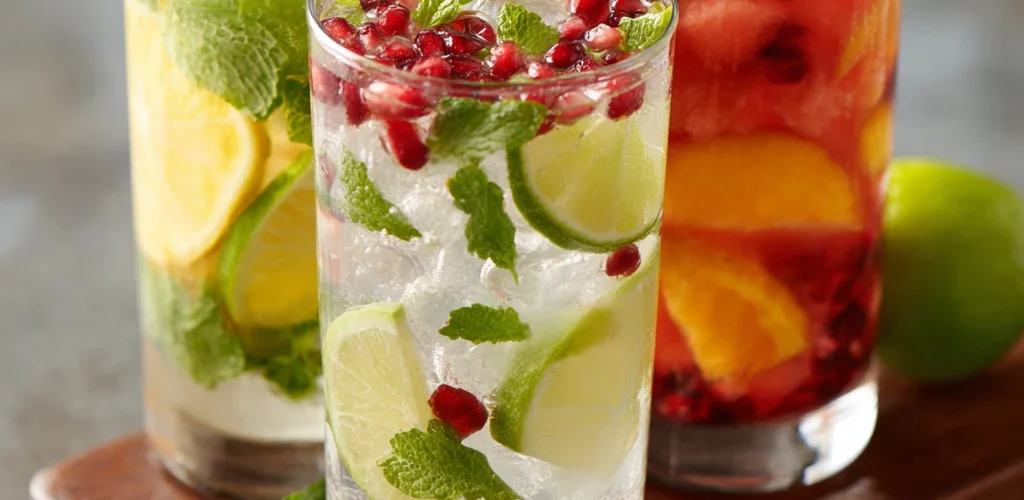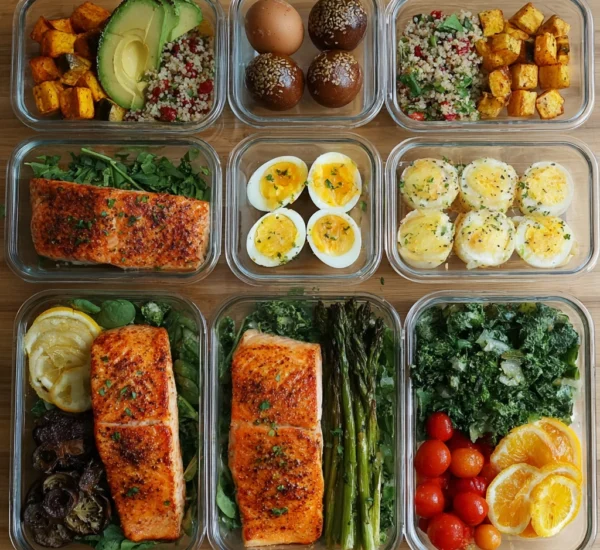Top 10 Quick Hydrating Drinks to Quench Your Thirst Fast
Staying hydrated is crucial for maintaining optimal health and well-being. Dehydration can lead to fatigue, headaches, and even more serious complications. While water is the ultimate hydrator, sometimes you crave something with a little more flavor or added benefits. Here are the top 10 quick hydrating drinks to replenish your fluids and electrolytes when you need them most.
1. Water: The Undisputed Hydration Champion
It’s no surprise that plain water tops the list. Water is essential for virtually every bodily function, from regulating temperature to transporting nutrients. Aim to drink at least eight glasses of water a day, but adjust based on your activity level and climate. It’s calorie-free, readily available, and the most effective way to stay hydrated. Consider carrying a reusable water bottle to remind yourself to drink throughout the day. You can also enhance your water by adding slices of cucumber, lemon, or berries for a refreshing twist. Don’t underestimate the power of simple, pure hydration.
Benefits of Water
- Maintains body temperature
- Transports nutrients and oxygen to cells
- Flushes out waste products
- Lubricates joints
- Protects tissues and organs
2. Coconut Water: Nature's Electrolyte Powerhouse
Coconut water, the clear liquid found inside young coconuts, is a natural source of electrolytes like potassium, sodium, and magnesium. These electrolytes are essential for maintaining fluid balance, muscle function, and nerve transmission. Coconut water is lower in calories and sugar than many sports drinks, making it a healthier alternative for rehydration after exercise or on a hot day. Its subtle sweetness and refreshing taste make it a popular choice for those looking for a more flavorful hydration option than plain water.
Why Choose Coconut Water?
- Rich in electrolytes (potassium, sodium, magnesium)
- Lower in calories and sugar than many sports drinks
- Naturally refreshing and hydrating
- May help with muscle cramps and fatigue
3. Electrolyte-Enhanced Water: Boosted Hydration
Electrolyte-enhanced waters are essentially water that has been fortified with electrolytes. These can be a good option if you’re sweating heavily or need a quick boost of electrolytes after a workout. They often come in various flavors and some contain added vitamins. However, be mindful of added sugars and artificial sweeteners. Look for brands with minimal ingredients and a focus on essential electrolytes like sodium, potassium, and magnesium.
Things to Consider
- Check the label for added sugars and artificial sweeteners
- Choose brands with essential electrolytes
- Consider making your own electrolyte water at home with a pinch of salt and lemon juice
4. Sports Drinks: Replenish and Refuel
Sports drinks are formulated to replenish fluids, electrolytes, and carbohydrates lost during intense physical activity. They typically contain sodium, potassium, and sugars to help maintain energy levels and prevent dehydration. While effective for athletes, they can be high in calories and sugar, so they are not always the best choice for everyday hydration. Use them strategically after workouts or during prolonged periods of sweating, but opt for water or lower-sugar alternatives for regular hydration.
When to Choose Sports Drinks
- After intense workouts lasting longer than an hour
- During prolonged periods of sweating
- To replenish electrolytes and carbohydrates
5. Fruit-Infused Water: Delicious and Hydrating
Infusing water with fruits is a delicious and healthy way to increase your fluid intake. The fruits add flavor and vitamins to the water, making it more appealing and encouraging you to drink more. Popular combinations include cucumber and mint, lemon and ginger, and strawberry and basil. Simply add sliced fruits and herbs to a pitcher of water and let it sit for a few hours to allow the flavors to infuse. This is a great way to stay hydrated throughout the day while enjoying a refreshing and flavorful drink.
Popular Fruit Infusion Combinations
- Cucumber and mint
- Lemon and ginger
- Strawberry and basil
- Watermelon and rosemary
- Blueberry and orange
6. Watermelon Juice: Sweet and Hydrating
Watermelon is not only delicious but also incredibly hydrating, thanks to its high water content (about 92%). It’s also a good source of electrolytes and antioxidants. Blending watermelon into juice is a refreshing and hydrating way to beat the heat. You can add a squeeze of lime or a few mint leaves for extra flavor. Watermelon juice is a naturally sweet and healthy alternative to sugary drinks.
Benefits of Watermelon Juice
- High water content (about 92%)
- Good source of electrolytes
- Rich in antioxidants
- Naturally sweet and refreshing
7. Herbal Teas: Soothing and Hydrating
Herbal teas, such as chamomile, peppermint, and hibiscus, are caffeine-free and can be a soothing and hydrating option. They offer a variety of flavors and potential health benefits, depending on the herbs used. Brew a cup of herbal tea hot or iced for a refreshing and healthy beverage. Just be sure to avoid teas with added sugars or artificial sweeteners.
Popular Herbal Tea Options
- Chamomile tea (calming and relaxing)
- Peppermint tea (aids digestion)
- Hibiscus tea (rich in antioxidants)
- Ginger tea (anti-inflammatory properties)
8. Milk: Calcium and Hydration
Milk is not only a good source of calcium and protein but also a hydrating beverage. It contains electrolytes and carbohydrates, making it a good option for rehydration after exercise. While some people may have sensitivities to dairy, milk can be a nutritious and hydrating choice for those who tolerate it well. Consider lower-fat options to reduce calorie intake.
Benefits of Milk
- Good source of calcium and protein
- Contains electrolytes
- Hydrating after exercise
- Consider lower-fat options
9. Fruit Smoothies: Nutrient-Packed Hydration
Fruit smoothies are a delicious and convenient way to hydrate and get a dose of vitamins and minerals. Blend fruits like berries, bananas, and mangoes with water, coconut water, or milk for a refreshing and nutritious drink. Add leafy greens like spinach or kale for an extra boost of nutrients. Be mindful of added sugars from juices or sweeteners, and focus on using whole fruits for the best nutritional value.
Smoothie Ingredient Ideas
- Berries (strawberries, blueberries, raspberries)
- Bananas
- Mangoes
- Spinach or kale
- Water, coconut water, or milk
10. Vegetable Juice: Hydration and Nutrients
Vegetable juices, such as tomato, cucumber, and carrot juice, can be a hydrating and nutrient-rich option. They are packed with vitamins, minerals, and antioxidants. Choose low-sodium options to avoid excessive salt intake. You can also make your own vegetable juice at home using a juicer or blender. Vegetable juice can be an acquired taste, but it’s a great way to get your daily dose of vegetables and stay hydrated.
Popular Vegetable Juice Options
- Tomato juice (rich in lycopene)
- Cucumber juice (cooling and hydrating)
- Carrot juice (rich in vitamin A)
- Beet juice (may improve athletic performance)
Frequently Asked Questions (FAQs)
Q: How much water should I drink a day?
A: The general recommendation is eight 8-ounce glasses of water per day, but individual needs vary. Factors like activity level, climate, and overall health can influence your hydration needs. Pay attention to your thirst cues and adjust your intake accordingly.
Q: What are the signs of dehydration?
A: Signs of dehydration can include thirst, dry mouth, headache, dizziness, fatigue, dark urine, and decreased urination. If you experience these symptoms, drink fluids immediately.
Q: Are sports drinks better than water for hydration?
A: Sports drinks are beneficial for replenishing electrolytes and carbohydrates lost during intense physical activity. However, they are often high in sugar and calories, so water is usually the best choice for everyday hydration.
Q: Can coffee or tea contribute to dehydration?
A: Caffeinated beverages like coffee and tea have a diuretic effect, which can lead to increased urination. However, they can still contribute to your overall fluid intake, especially if consumed in moderation.
Q: What are electrolytes and why are they important?
A: Electrolytes are minerals like sodium, potassium, and magnesium that help regulate fluid balance, muscle function, and nerve transmission. They are lost through sweat and need to be replenished, especially during and after exercise.
Q: Is it possible to drink too much water?
A: Yes, drinking excessive amounts of water can lead to a condition called hyponatremia, where the sodium levels in the blood become dangerously low. This is rare but can occur if you drink large amounts of water in a short period of time without replacing electrolytes.
Q: Can I count fruits and vegetables towards my daily fluid intake?
A: Absolutely! Fruits and vegetables with high water content, such as watermelon, cucumber, and spinach, can contribute significantly to your daily fluid intake. They also provide valuable nutrients and fiber.
Q: What's the best time to drink water?
A: There isn’t a single “best” time, but it’s generally a good idea to drink water throughout the day. Drink a glass of water first thing in the morning, before and after meals, and before, during, and after exercise.



